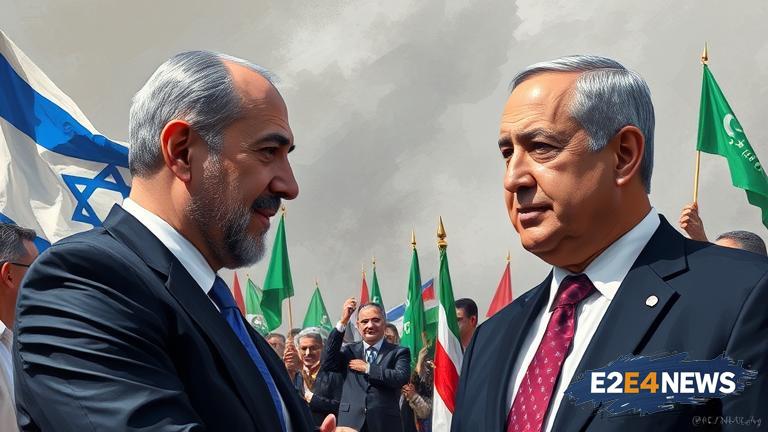The ongoing conflict between Israel and Hamas has reached a critical juncture, with the international community calling for an immediate ceasefire. The situation on the ground is dire, with innocent civilians caught in the crossfire and suffering greatly. Israeli Prime Minister Benjamin Netanyahu is facing intense scrutiny for his handling of the crisis, with many questioning his ability to lead the country out of this quagmire. The conflict has been ongoing for years, with periods of relative calm punctuated by outbreaks of violence. However, the current escalation is particularly worrying, with both sides suffering heavy losses. The Israeli military has launched numerous airstrikes against Hamas targets in Gaza, while the militant group has responded with rocket attacks against Israeli cities. The humanitarian situation in Gaza is catastrophic, with hospitals and other essential services struggling to cope with the influx of wounded civilians. The international community has condemned the violence and called for an immediate ceasefire, but so far, neither side has shown any willingness to back down. The United States, a key ally of Israel, has been criticized for its response to the crisis, with many arguing that it has not done enough to pressure Israel to negotiate a peaceful resolution. The European Union has also been vocal in its criticism of the violence, with many of its member states calling for a more robust response to the crisis. The conflict has also had a significant impact on the region, with neighboring countries such as Egypt and Jordan struggling to cope with the influx of refugees. The economic costs of the conflict are also mounting, with both Israel and Gaza suffering significant losses. The conflict has also had a profound impact on the Israeli political landscape, with many of Netanyahu’s opponents calling for his resignation. The Israeli prime minister has faced intense criticism for his handling of the crisis, with many arguing that he has not done enough to protect Israeli civilians. Despite the criticism, Netanyahu remains defiant, insisting that he will do whatever it takes to protect Israel’s security. The conflict has also raised questions about the role of the international community in resolving the crisis. Many have argued that the United Nations and other international organizations have not done enough to pressure both sides to negotiate a peaceful resolution. The conflict has also highlighted the need for a more comprehensive and sustainable solution to the Israeli-Palestinian conflict. A two-state solution, which has been the basis of international efforts to resolve the conflict for decades, is looking increasingly unlikely. The conflict has also raised questions about the future of the Middle East peace process, with many arguing that it is time for a new approach. The international community must come together to find a solution to this crisis, one that takes into account the needs and concerns of all parties involved. The conflict is a stark reminder of the need for diplomacy and dialogue in resolving complex and deeply entrenched conflicts. The situation on the ground is fluid and unpredictable, with the potential for further escalation always present. The international community must remain vigilant and work towards a peaceful resolution to this crisis, one that prioritizes the needs and safety of all civilians involved.





